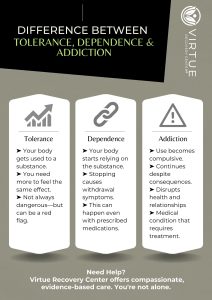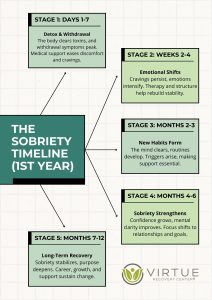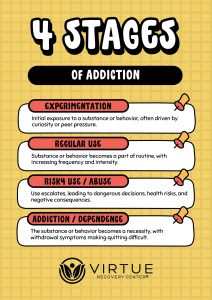Key Takeaways
- Recovery is not one-size-fits-all; alternatives to the 12-step model are available.
- Programs like SMART Recovery and Women for Sobriety cater to different beliefs and approaches.
- Finding the right program can enhance your recovery journey.
Introduction to 12-Step Alternatives For Recovery Support
The 12-step program has been a guiding light for millions battling addiction. Its spiritual framework and group support have proven invaluable. However, some individuals find its principles misaligned with their values or needs.
Recovery isn’t limited to a single path. Alternative programs rooted in science, personal empowerment, or secular approaches exist. Exploring these options can help individuals find a method that resonates with their journey.
Understanding the Limitations of the 12-Step Program
While effective for many, the 12-step model doesn’t suit everyone. Its emphasis on spirituality and surrendering to a higher power can be challenging for those with different beliefs. Additionally, its structure might not align with the preferences of individuals seeking more autonomy or a non-religious approach.
Critics also point to the notion of powerlessness, which some feel conflicts with the self-empowerment essential for recovery. For these reasons, many seek alternatives that provide a more personalized path.
SMART Recovery Support Group: A Scientific Approach
SMART Recovery, or Self-Management and Recovery Training, offers a science-based alternative to the 12-step program. It equips individuals with tools grounded in cognitive-behavioral techniques to manage cravings and emotions.
This program emphasizes:
- Self-empowerment: Encouraging individuals to take control of their recovery.
- Practical skills: Techniques for coping with triggers and managing stress.
- Goal-setting: Creating achievable milestones for a substance-free life.
With in-person and online meetings, SMART Recovery ensures accessibility for those seeking a structured yet flexible recovery plan.
Women for Sobriety (WFS)
Women often face unique challenges in addiction recovery. Women for Sobriety (WFS) addresses these needs through a program centered on emotional and spiritual growth.
Key principles of WFS include:
- A focus on positivity and self-worth.
- Building confidence to replace guilt or fear.
- Strengthening emotional resilience.
Designed exclusively for women, WFS provides a safe space for members to share experiences and build a supportive community.
Secular Organizations for Sobriety (SOS)
Secular Organizations for Sobriety (SOS) caters to individuals seeking recovery without religious or spiritual elements. SOS focuses on personal responsibility and empowerment, offering an inclusive space for all beliefs.
Participants benefit from:
- Peer support networks.
- A focus on rational thinking and decision-making.
- Non-judgmental environments are available both in-person and online.
SOS is an excellent choice for those who appreciate a logical and practical approach to recovery.
Cognitive Behavioral Therapy (CBT) in Addiction Recovery
Cognitive Behavioral Therapy (CBT) isn’t a group program but a therapeutic method often used in addiction treatment. CBT helps individuals understand the thought patterns driving their behaviors.
Therapists guide participants through:
- Identifying triggers and unhealthy thought patterns.
- Learning coping strategies to handle cravings.
- Setting goals for positive behavioral changes.
CBT can be integrated into other recovery programs or used as a standalone treatment for those seeking a personalized approach.
LifeRing Secular Recovery
LifeRing Secular Recovery is an abstinence-based program focused on individual empowerment. Members create their recovery plans with support from a peer group.
Core principles include:
- Self-direction: Each person determines what works best for them.
- Building a positive support network.
- Encouraging active participation in recovery.
LifeRing’s non-religious approach appeals to individuals seeking a flexible, inclusive recovery method.
Online and Remote Recovery Options
Online recovery programs offer a convenient alternative for those who can’t attend in-person meetings. Platforms like SMART Recovery and SOS have expanded their digital offerings to include virtual meetings, chat groups, and educational resources.
Benefits of online recovery include:
- Accessibility from anywhere.
- Anonymity for those seeking privacy.
- Flexible scheduling to accommodate busy lives.
These tools ensure no one is left without support, regardless of location or circumstances.
Conclusion To Alternatives to 12-Step Programs
Recovery is a unique journey; choosing the right program can make all the difference. While the 12-step model has its place, alternatives like SMART Recovery, WFS, SOS, and CBT provide diverse paths to sobriety. Each program offers something distinct, allowing individuals to find the approach that aligns with their values and needs.
If you or a loved one is struggling with addiction, professional guidance is essential. Call Virtue Recovery Las Vegas at 866-520-2861 to learn more about personalized treatment options that can help you on your path to recovery.
FAQs About Alternatives to 12-Step Recovery
What are the main differences between the 12-step program and alternatives?
The 12-step program often includes spiritual elements, while alternatives like SMART Recovery and CBT emphasize science-based and self-empowerment methods.
Can I combine the 12-step program with other recovery methods?
Absolutely. Many people mix approaches, attending 12-step meetings while also exploring CBT or other therapies.
Are alternative programs as effective as the 12-step model?
Effectiveness varies by individual. Alternatives like SMART Recovery and CBT have shown success for many participants.
Are online recovery programs reliable?
Yes, online programs provide effective support and are especially useful for those unable to attend in-person meetings.
How do I decide which recovery program is right for me?
Consider your values, preferences, and recovery goals. Speaking with a treatment professional can help guide your choice.
What are alternatives to AA for alcohol addiction recovery?
Alternatives to Alcoholics Anonymous (AA) include programs like SMART Recovery, which focuses on self-management and cognitive-behavioral techniques, and Refuge Recovery, which integrates mindfulness and Buddhist principles. Other options include Women for Sobriety, which caters specifically to women, and Secular Organizations for Sobriety (SOS), which offers a non-religious approach to recovery. These alternatives provide diverse methodologies to suit different preferences and beliefs in overcoming alcohol addiction.
What are some treatment options for drug & alcohol addiction?
Treatment options for drug and alcohol addiction include medical detox to manage withdrawal symptoms, inpatient and outpatient rehabilitation programs, and therapy modalities such as cognitive-behavioral therapy (CBT) and motivational interviewing. Medication-assisted treatment (MAT) can also be effective for managing cravings and preventing relapse. Additional support systems, like group counseling and aftercare planning, ensure individuals receive comprehensive, long-term support on their recovery journey.
Are There Non-12-Step Programs for Treating Cocaine Abuse?
Yes, there are non-12-step programs for treating cocaine abuse. Many individuals may find traditional 12-step programs ineffective, so they seek alternative options. Non-12-step programs offer different approaches tailored to the individual’s needs, providing the best treatment cocaine abuse for those who do not resonate with the traditional 12-step model.
How Does an Intensive Outpatient Program Differ from a Traditional 12-Step Program as an Alternative?
An intensive outpatient program explained here differs from a traditional 12-step program in various ways. Unlike the strict structure of a 12-step program, an intensive outpatient program offers more flexibility in terms of scheduling, allowing individuals to continue their daily routines while receiving intensive treatment for addiction or mental health issues.
Resources
https://smartrecovery.org/blog/5-alternatives-to-12-step-meetings-2













